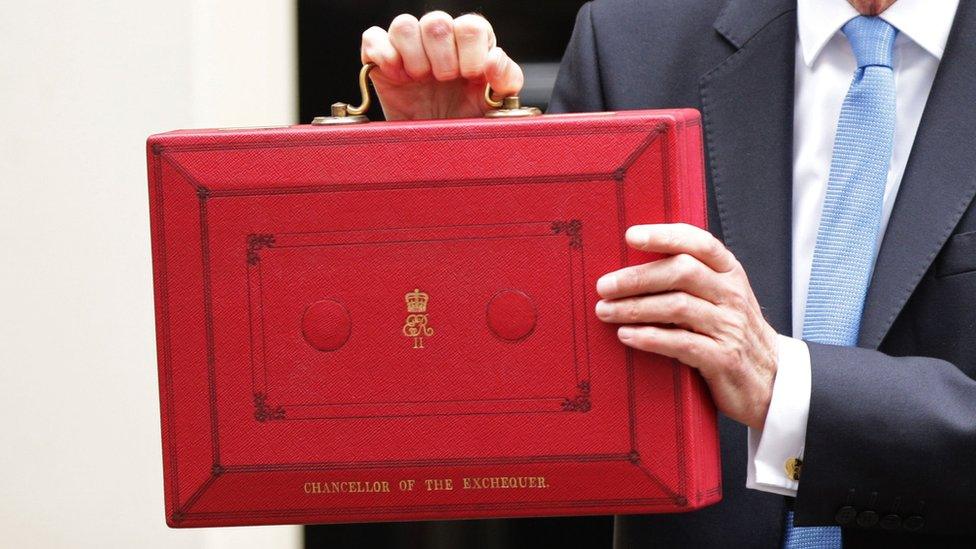The EU-exit papers and the economics of Brexit
- Published
- comments

The analyses have been sent to the Parliamentary committee studying the process of leaving the EU
Understanding the possible economic impact of Britain's decision to leave the European Union is a difficult business.
It is likely to become easier when the Department for Exiting the European Union makes available its "sector analyses" on relations with our biggest trading partner.
The documents were sent to Parliament today. Now, that doesn't mean they will be published immediately.
The government agreed to send them to the select committee studying the process of leaving the EU, which is chaired by the Labour MP Hilary Benn.
It will then be up to Mr Benn and his colleagues on the committee when and what to publish.
I am told in no uncertain terms that the reports - which will run to hundreds of pages - are not "impact assessments".
That is, they will not put a figure on the possible costs if there is a sharp dislocation between the free trading arrangements we have with the EU now and what might follow after we leave.
Rather, I understand the reports will show the size of each of the sectors and their worth to the UK economy.
And then detail how the sectors work at present within the EU single market and customs union.
Very little will be redacted.
'Status reports'
Some sectors, such as automotive - worth about £14.6bn a year to the UK economy and employing 162,000 people - have deep and complicated links to the rest of the EU.
Without what might be described as a "good" deal post March 2019 and a plan for a two year implementation period, the impact on that sector could be substantial.
Others, such as the creative industries - worth around £28bn and employing 753,000 people, according to the House of Commons Library, external - are likely to experience fewer effects.
(It's worth noting that the Department for Digital, Culture, Media and Sport puts that figure much higher, at £91.8bn, external.)

Nissan makes the Qashqai SUV at its Sunderland plant
Each analysis - and there will be up to 58 - will detail the sector's contribution to the EU and the EU's contribution to the sector.
They will be up to date "status reports" and will provide some details on what the sector believes some of the risks of a disorderly departure are.
So, for example, expect the analysis of the car industry to include the position of the SMMT, formerly the Society of Motor Manufacturers, which has called for "tariff-free access to European markets".
The reports will give a clear insight into the economic links between the UK and the EU, both in monetary terms and in regulatory terms.
And as such, they will allow for a sober assessment of what is at stake economically as we approach the final 20 months of negotiations.
- Published22 November 2017

- Published22 November 2017
